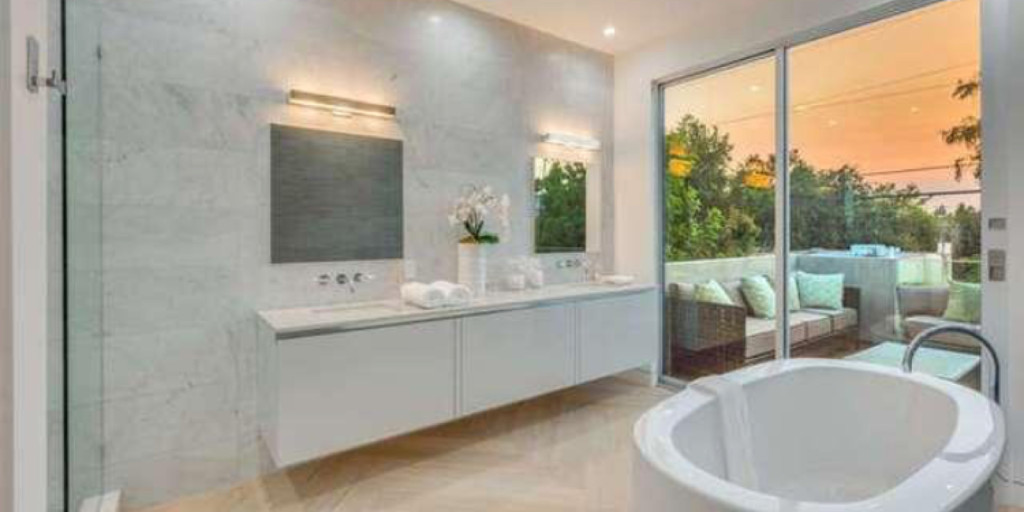Deciding on and securing your first home is a journey with many potential plot twists. Along the way, expectations will be readjusted, minds will be changed, and snags will probably pop up. In the end, though, when things come together, the destination is hopefully a place you can comfortably call home for at least the next five to seven years. That may not seem like much of a commitment, but five years can feel like an eternity if you wind up waking up each day in a place you hate.
Carol Temple, a realtor from Arlington, Virginia who specializes in helping first-time buyers secure starter homes says, “You want to buy something that’s going to last.” You never truly know if the home you select will meet your long-term expectations, or that you won’t wind up spending the next five years wishing you had selected a different starter.
1. Monthly expenses you can comfortably handle
According to David Reiss, a professor of real estate law at Brooklyn Law School in Brooklyn, NY, “New homeowners are often not aware of how expenses can add up when they own a home.” If you have been a renter your entire adult life, you may be surprised by how much it actually costs to own a home. Beyond the mortgage and real estate taxes, remember to take into account all of the miscellaneous homeowner costs that generally increase over time, including security systems, lawn care, insurance, utilities, and never ending maintenance costs. Before settling on a final choice, plan for all the obvious costs, and add a little extra cushion for unexpected expenses.
2. The less maintenance the better
Older houses may have their unique charm, but that charm will typically cost you more in maintenance costs down the road. You might be pretty handy with a hammer or some drywall, but who wants to spend all of their spare room fixing any and everything that decides to break? Even if you thoroughly enjoy being a handy person, it is pretty unlikely that you are able to keep up with all of the mechanical defects that can arise, namely plumbing, electrical, heating, air conditioning, and ventilation systems.
Newer construction, meaning anything under 10 years old, might be a great option for you, especially if you aren’t super handy. A home under 10 years old could mean warranties that are still intact, and less mechanical defects.
A brand new construction might also work for you considering that some parts, including the mechanical defects we just mentioned, are usually covered under warranty for at least two years. Labor and materials are generally covered for one year, and structural defects can be covered for up to 10 years. That means, handy or not, in the event that something goes wrong right away, you’re covered.
Whether you purchase an older home, a newish home, or a brand new home, always hire a reputable home inspector to spot any potential problems.
3. Growing room
Today it may just be you, a spouse and your new puppy sharing your living space. In just a few short years though, your nuclear family could look much differently. Whether you add a kid or two, you rescue another pup so your first pup has a live-in bestie, or your kid brother somehow talks his way into your spare bedroom, leave a little wiggle room for things to grow.
When you talk with your lender, make sure you get pre-approved for the largest mortgage for which you can qualify. No one knows the future, but take advantage of the opportunity you have to purchase as much space as you can reasonably afford.
It’s easy to be impressed by fancy finishes, but don’t ignore a home’s potential if it speaks to your future needs. Keep in mind that it is much easier (and much less expensive) to update fixtures and appliances, and knock out a wall or two to change a floor plan than it is to lift a roof or push out an exterior wall.
4. Smooth transition from one home to the next
Finding the perfect starter home for you may mean settling on one that is a little further away from work, friends, family, and pastimes than where you currently reside. Making the transition from your rental to your starter home will already be a major adjustment, so pick a starter home that doesn’t add too much additional tension to your everyday life. A hefty commute that adds hours to your workday, or a two-hour round trip to visit your favorite art gallery, have dinner with friends, or go to your dentist may be tolerable for a while, but you will likely end up with buyers regret and a few less friends.
We get it–this is overwhelming, maybe even scary. Taking a leap of faith that you have the right skills, discipline, money and temperament to be a homeowner isn’t easy, but this foolproof formula can help ease the nerves of even the most nervous first-time buyer.

